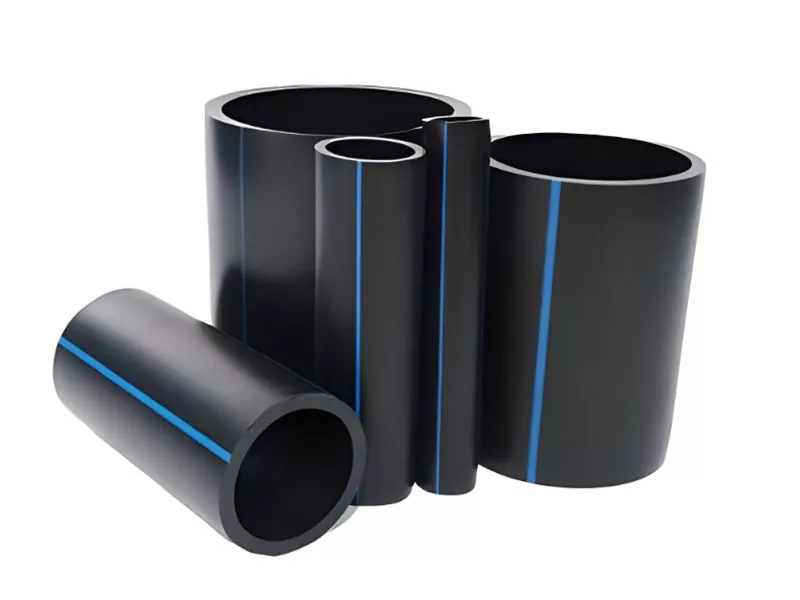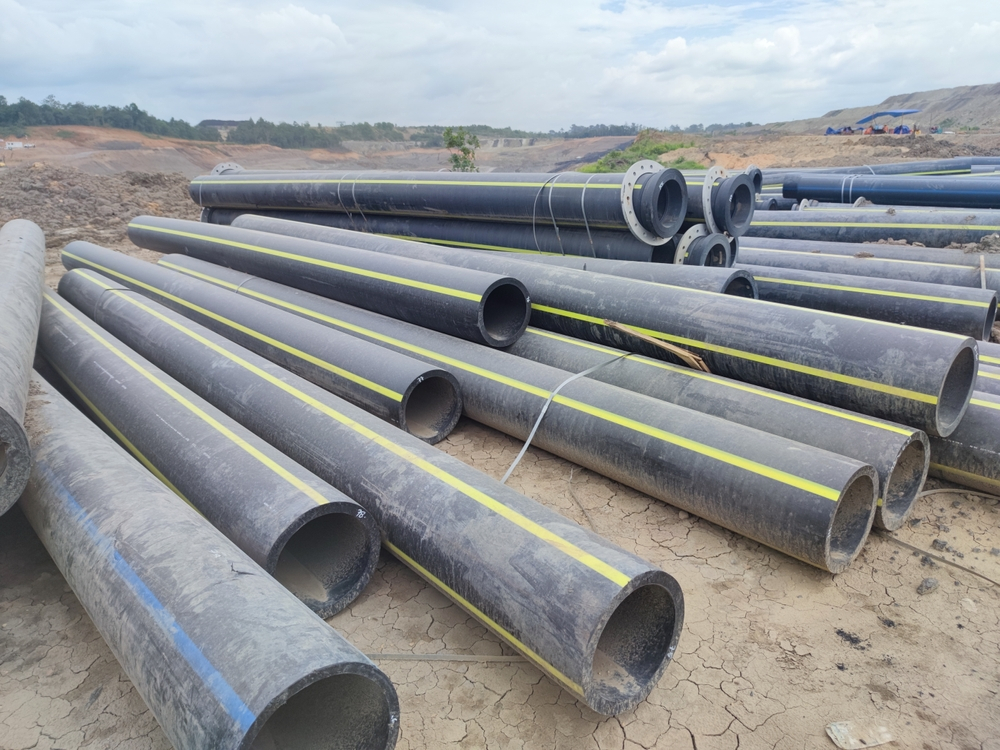Comprehending the Key Benefits of HDPE Pipe for Water and Wastewater Monitoring
Making use of HDPE pipe in water and wastewater monitoring offers numerous benefits that merit factor to consider. Its extraordinary sturdiness and lengthy life expectancy make it a preferred choice for many tasks. In addition, the product's resistance to deterioration and chemical damages boosts its integrity in various environments. However, the benefits expand beyond simply durability and resistance. Exploring its cost-effectiveness and ecological impact exposes much more compelling factors for its widespread fostering in modern framework
Phenomenal Resilience and Long Life

HDPE pipeline attracts attention for its extraordinary durability and durability, making it a recommended option in water management systems. Constructed from high-density polyethylene, these pipelines can endure significant pressure and stress and anxiety, guaranteeing dependable efficiency over time. Their robust nature enables them to withstand severe ecological problems, including temperature fluctuations and soil motions, which can trigger various other materials to fail.
The lifespan of HDPE pipes commonly goes beyond half a century, offering a cost-efficient service for districts and industries alike. Additionally, the material's light-weight homes streamline setup, minimizing labor expenses and timeframes. This resilience minimizes the need for constant repairs or replacements, even more enhancing its economic allure.
In water administration applications, the integrity of HDPE pipes suggests fewer disruptions and improved solution connection, making them indispensable to lasting framework development. The combination of sturdiness and durability strengthens HDPE's function as a foundation in effective water management solutions.

Resistance to Deterioration and Chemical Damages
While many products surrender to rust and chemical damages in time, HDPE pipelines show remarkable resistance, making them suitable for various water administration applications. This durability originates from the molecular structure of high-density polyethylene, which is inherently non-reactive and does not rust like steels or deteriorate from direct exposure to severe chemicals. Therefore, HDPE is extremely reliable in settings with hostile materials, such as wastewater systems that might have acids, bases, and natural solvents.
In addition, HDPE pipelines can withstand environmental factors such as soil level of acidity and saline conditions, further boosting their viability for varied applications (hdpe pipe in stock Midland TX). Their capability to maintain structural honesty with time lowers the danger of leaks and failures, which is critical in guaranteeing the safety and reliability of water circulation and wastewater monitoring systems. The resistance to corrosion and chemical damages noticeably adds to the total effectiveness and longevity of HDPE piping solutions.
Cost-Effectiveness and Financial Benefits
When thinking about the economic ramifications of water management systems, the cost-effectiveness of HDPE pipes ends up being obvious. These pipes supply reduced installation and upkeep costs compared to standard materials like metal or concrete. Their light-weight nature simplifies transport and installment, resulting in decreased labor expenditures. Furthermore, HDPE pipelines display a long lifespan, frequently exceeding half a century, which equates to fewer substitutes and long-term cost savings.
The resistance of HDPE to corrosion and chemical damages decreases the demand for pricey repair work and substitutes. The pipes additionally support reliable water flow, lowering energy click here prices connected with pumping systems. By reducing leaks and water loss, HDPE pipes add to significant financial benefits for towns and sectors alike. On the whole, the preliminary investment in HDPE piping can generate considerable monetary returns over the lifespan of the water administration system, making it a prudent option for sustainable facilities advancement.
Ecological Sustainability and Lowered Influence

Versatility and Flexibility in Installment
As a result of their special homes, HDPE pipes supply remarkable versatility and adaptability in setup, making them appropriate for a large range of applications. Their light-weight nature permits for much easier handling and transportation, reducing labor prices and setup time. HDPE pipes can be bent and shaped to fit various surfaces and project requirements, which is particularly valuable in challenging settings.
Additionally, their resistance to deterioration and chemical damages permits setup in varied settings without the requirement for specialized protective coatings. The capacity to fuse joints develops a constant, leak-free system, boosting the general integrity and integrity of the installment. HDPE's flexibility likewise accommodates ground activity, reducing the danger of damages in locations vulnerable to changing dirt. Overall, these qualities make HDPE pipes not only flexible yet additionally a preferred choice for water and wastewater management systems.
Often Asked Concerns
Exactly How Does HDPE Pipe Contrast to PVC in Water Management Applications?
HDPE pipeline supplies premium adaptability, resistance to deterioration, and durability compared to PVC. Its lighter weight facilitates easier installment, while its lengthy life expectancy minimizes replacement costs, making HDPE a preferred selection in water monitoring applications.
What Is the Life Expectancy of HDPE Water Lines Under Common Conditions?
Under regular problems, HDPE pipelines can have a life expectancy ranging from 50 to 100 years. Their resilience and resistance to corrosion add to their lasting efficiency in various applications, making them a dependable choice for framework.
Are HDPE Water Lines Recyclable After Their Life Span?
Yes, HDPE pipelines are recyclable after their life span. American Plastics HDPE Pipe for Oilfield. They can be processed and repurposed right into new items, considerably minimizing environmental influence and promoting sustainability within the sector, making them a green choice for piping remedies
What Is the Installation Refine for HDPE Pipeline?
The installment process for HDPE pipelines includes site prep work, trenching, pipe blend or mechanical joining, backfilling, and stress screening. Appropriate techniques ensure a long lasting and efficient system for transporting water and wastewater properly.
Can HDPE Water Lines Be Used for Both Safe And Clean and Non-Potable Water Systems?
Yes, HDPE pipelines can be utilized for both drinkable and non-potable water supply. Their adaptability, resilience, and resistance to deterioration make them suitable for different applications, making sure safe and effective transportation of water in various contexts.